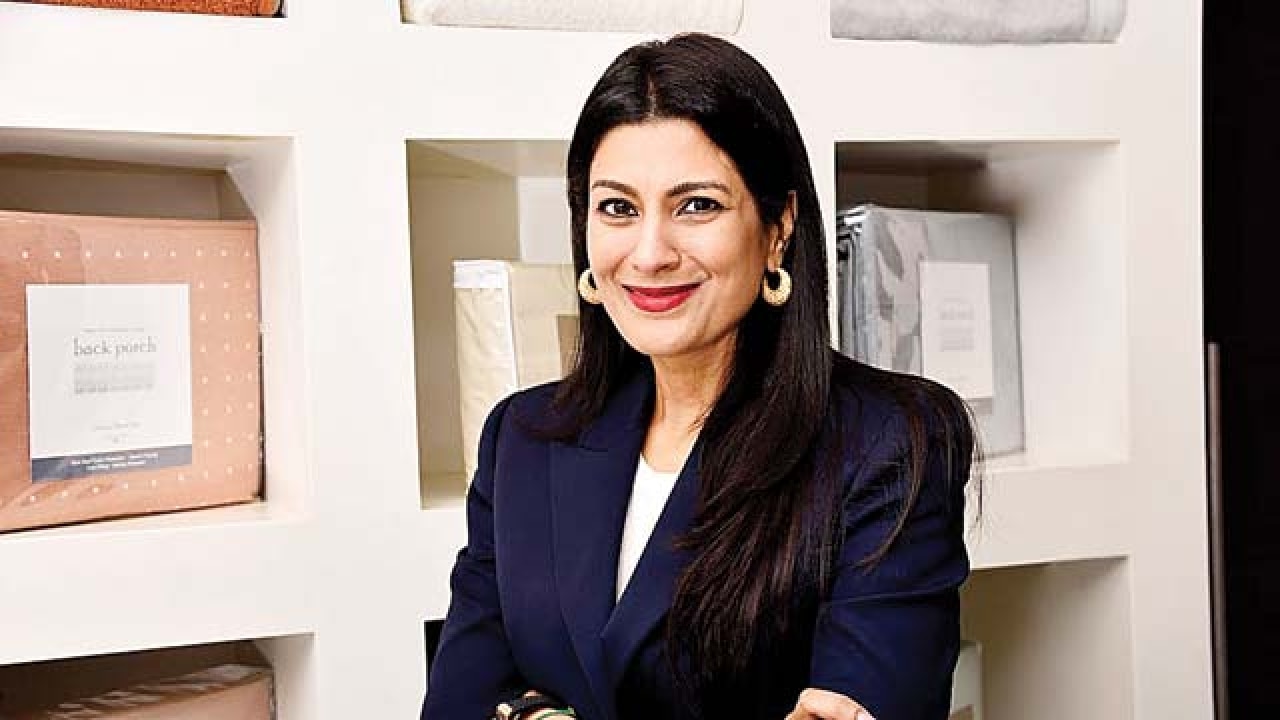
Home textiles maker Welspun India, a part of the $2.3 billion multinational conglomerate Welspun Group, suffered a major setback in August last year after the US-based retailer Target Corp discontinued sourcing of Egyptian cotton products. Over the last few quarters, the company has worked extensively on not only rebuilding the confidence but also setting up a robust process that will be a benchmark in the textile industry. At the recently-concluded annual results meet, Dipali Goenka, CEO and joint managing director, Welspun India Ltd, spoke about measures taken on the Egyptian cotton front while also delving into other business aspects. Ashish K Tiwari reports.
We now have a system called Wel-Track that traces cotton from the source to the point of sale. While the system tracks physical verification on the floor, the radio-frequency identification device (RFID) technology allows tracing the cotton from the farms to the gin (a machine that quickly and easily separates cotton fibre from seeds) to the spinning to weaving to the last end of a product, which is cutting suit. There is also a QR code that can trace it back to the source. This initiative will set a benchmark in the textile manufacturing industry. Additionally, we now we have a five-year agreement in place with the Cotton Egypt Association (CEA) for related products and use of the Egyptian Cotton logo on them. We have also tied up with one of the biggest farmers in the United States of America for sourcing of the Supima cotton.
Business continues like before with retailers in Europe and the US. That apart, a lot of interest is getting generated as a result of the new traceability system. So we are very positive and I think over the next six months we will see a huge upside in the premium cotton business. In fact, when Target happened to us, there were a lot of other things we started exploring. For instance, hospitality is starting to see a good upswing and we will see three times growth in the next three years. Then, we have health and wellness, e-commerce and our domestic brands apart from different channels of growth across different countries. If we are maintaining a growth perspective of around 12%, it speaks a lot because Target was quite a substantial part of what we were doing. I think we have continued to grow across different channels, countries and businesses.
There was only one player (Target) and that’s it (that has not started sourcing). So we will talk about it at a later stage. I think the kind of positivity that we have seen and the encouragement from our retailers on the whole traceability system - I think it’s one of its own kind not only in home textiles but in the apparel industry. I think we are setting a benchmark, which will be in fact a landmark in the industry on traceability.
Regarding commodity costs, I’d just like to say that our portfolio of innovation contributes around 36% of our turnover and 16% is the brands. I think our margins, to that extent, will be quite strong but yes, of course, the commodities have their impact on the business too.
I think there are different kinds of approaches that can be taken. There are ideas that could be innovative when we speak to the customers about different kind of products; there could be some price rises and a new range of products as we’re discussing.
It is an on-going conversation and when you talk about programmes, they don’t happen all of a sudden because you are talking about thousand stores. It is a progressive thing and will continuously happen in every quarter as we go forward. I won’t be able to talk about how much it will be at the moment. That’s because there are two aspects to it. One is the commodity side and second is GST. I think everybody is waiting and watching till July. For the domestic market, of course, we will be looking at some price hikes that will happen before July.
Our whole supply chain planning has been quite calibrated. In fact, even for domestic we have taken a calibrated approach in this first quarter and the second. And anyway, if you know about the domestic market, the biggest upswing comes in the latter half of the year, i.e. August. Nearly 75% of selling happens August onward. So I think we are completely prepared. We have taken a very calibrated and controlled approach in the inventory. We’re also continuing to work with our partners in the distribution channel.
No, not at all. We would have gone and launched a spring summer collection if possible, but I think this time it has been quite a controlled approach that we have taken.
The scenario actually works in our favour. That’s because we are launching Spaces and the new look of Spaces for the new season of autumn winter. So I think that's where we have actually already planned ourselves and we’re pretty confident and quite controlled about what we are doing.
Our website called www.shopwelspun.in has gone live. So there's a lot of development happening on the e-commerce front. Overall sales from online channels have seen a 40% growth this year and in the next year, we are seeing a 100% growth globally (primarily in the US, the UK and India). Interestingly enough, it's not just about e-commerce, but we have also tied up with our retailers to be able to deliver the omnichannel experience. So there is a whole lot of momentum that is happening globally on this initiative.